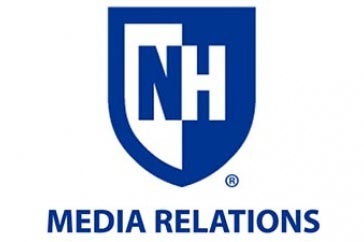SBDC Survey Finds Many Small Businesses Impacted by COVID-19, Eager to Put Resiliency Plans in Place

DURHAM, N.H.—A survey of 1,549 small businesses in the state by the NH Small Business Development Center (SBDC) found more than half had seen their revenue decrease by 50% or more, especially those with few employees and those in the arts, entertainment and recreation industry or the accommodation and food service industry, as a result of the COVID-19 pandemic. Forty-seven percent of responding businesses had the same number of employees now as they did in February while 43% had fewer employees.
“The goal of the Business Resiliency Survey was to better understand the challenges and needs of small businesses across the state so we can more effectively help them recover, reopen and become more resilient,” said Liz Gray, state director of the NH SBDC. “Fifty-six business organizations representing a wide range of industries, business associations and regions partnered with us to ensure we heard from as many businesses as possible.”
Businesses in 172 cities and towns responded to the survey between June 10 and 24, 2020.
The NH SBDC received $1.28 million in CARES Act funding to support the state’s small businesses. In addition to conducting the survey in partnership with the University of New Hampshire Survey Center, the funding is being used to build staff capacity, cultivate strategic partnerships that will more easily expand SBDC’s outreach, find new ways to engage past, current and prospective clients, and deliver the highest quality advising, education and training for small business owners and entrepreneurs.
“We knew businesses were struggling but the survey data quantified the problems and gave us ideas on how we can best support companies going forward,” said Gray. “Maintaining sales/revenue and customers were by far the biggest concerns, with more than four out of five participants saying they are very or somewhat concerned with maintaining sales, customers and revenue. A majority of respondents are very or somewhat concerned about access to capital, supply chain disruptions, timely payment of bills, liability with following health guidelines and cleaning the work environment as their business recovers.
Gray also noted that the survey revealed new ideas and opportunities businesses identified through the pandemic, including better communication with customers, partnerships with other small businesses, and new and expanded ways to do business like ecommerce, takeout and curbside pickup. Most businesses plan to continue these changes going forward.
The Business Resiliency Survey also found that while just 19% of the businesses who participated in the survey had a resiliency plan in place prior to the pandemic, nearly three quarters think creating a resiliency plan will be important to their business in the future. To address this issue, SBDC is working with UNH Cooperative Extension to host several regional Small Business Resiliency Academies across the state. The academy will have tracks for both community economic development practitioners and small businesses. Participants will develop a better understanding of business and community resiliency, while developing their respective disaster planning and continuity of operations plans.
“Most participants are confident they can continue operating in the short term, but about one in six say they are not very or not at all confident their business will be operating 12 months from now,” said Gray. “This is where the NH SBDC already is and can continue to be helpful. Together with other economic development partners we can keep small businesses alive and thriving in the Granite State.”
SBDC has supported over 5,000 businesses since the beginning of the year through direct advising and live webinars. The center has made access to its resources and services easier via remote Zoom advising and expanded content online. A follow-up survey will be conducted in nine months. The abridged survey report is available; email nh.sbdc@unh.edu for a link to the full report.
The NH Small Business Development Center is the leading resource for business advising and education for small businesses in the Granite State. SBDC’s team of certified business advisors provides highly individualized, confidential advising, at no charge to NH enterprises. Whether a company is just getting started, seeking capital, bringing new products to market, or improving operations, SBDC’s team can help them achieve their goals. The center is funded in part through a cooperative agreement with the U.S. Small Business Administration and through assistance provided by the State of NH. NH SBDC is an outreach program of the UNH Peter T. Paul College of Business and Economics in conjunction with SBA, the State of NH (BEA), UNH and the private sector.
The UNH Survey Center is an independent, non-partisan academic survey research organization. The Survey Center conducts telephone, mail, web and intercept surveys, as well as focus groups and other qualitative research for university researchers, government agencies, public non-profit organizations, private businesses and media clients.
The University of New Hampshire inspires innovation and transforms lives in our state, nation, and world. More than 16,000 students from all 50 states and 71 countries engage with an award-winning faculty in top-ranked programs in business, engineering, law, health and human services, liberal arts and the sciences across more than 200 programs of study. As one of the nation’s highest-performing research universities, UNH partners with NASA, NOAA, NSF and NIH, and receives more than $110 million in competitive external funding every year to further explore and define the frontiers of land, sea and space.
Latest News
-
April 15, 2025
-
Research Finds Rural Americans Carry Heavy Burden Accessing Social Security Benefits and InformationMarch 27, 2025
-
March 25, 2025
-
March 17, 2025
-
March 12, 2025













































